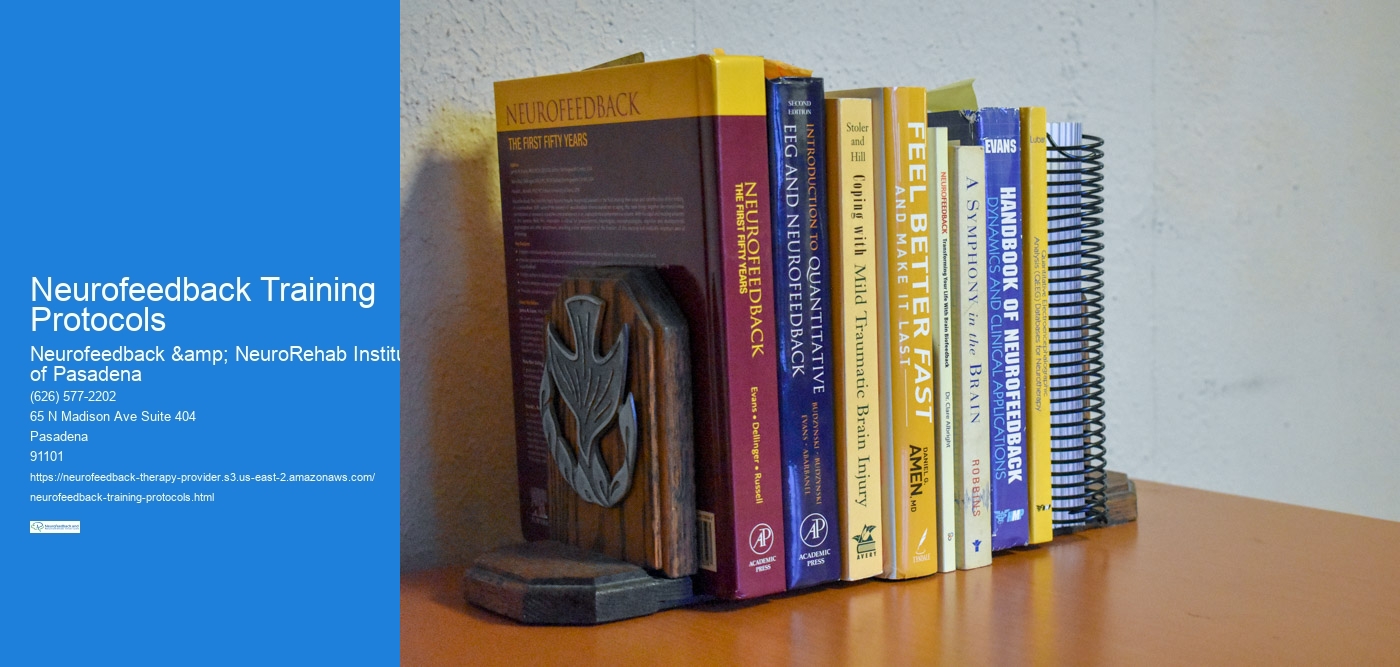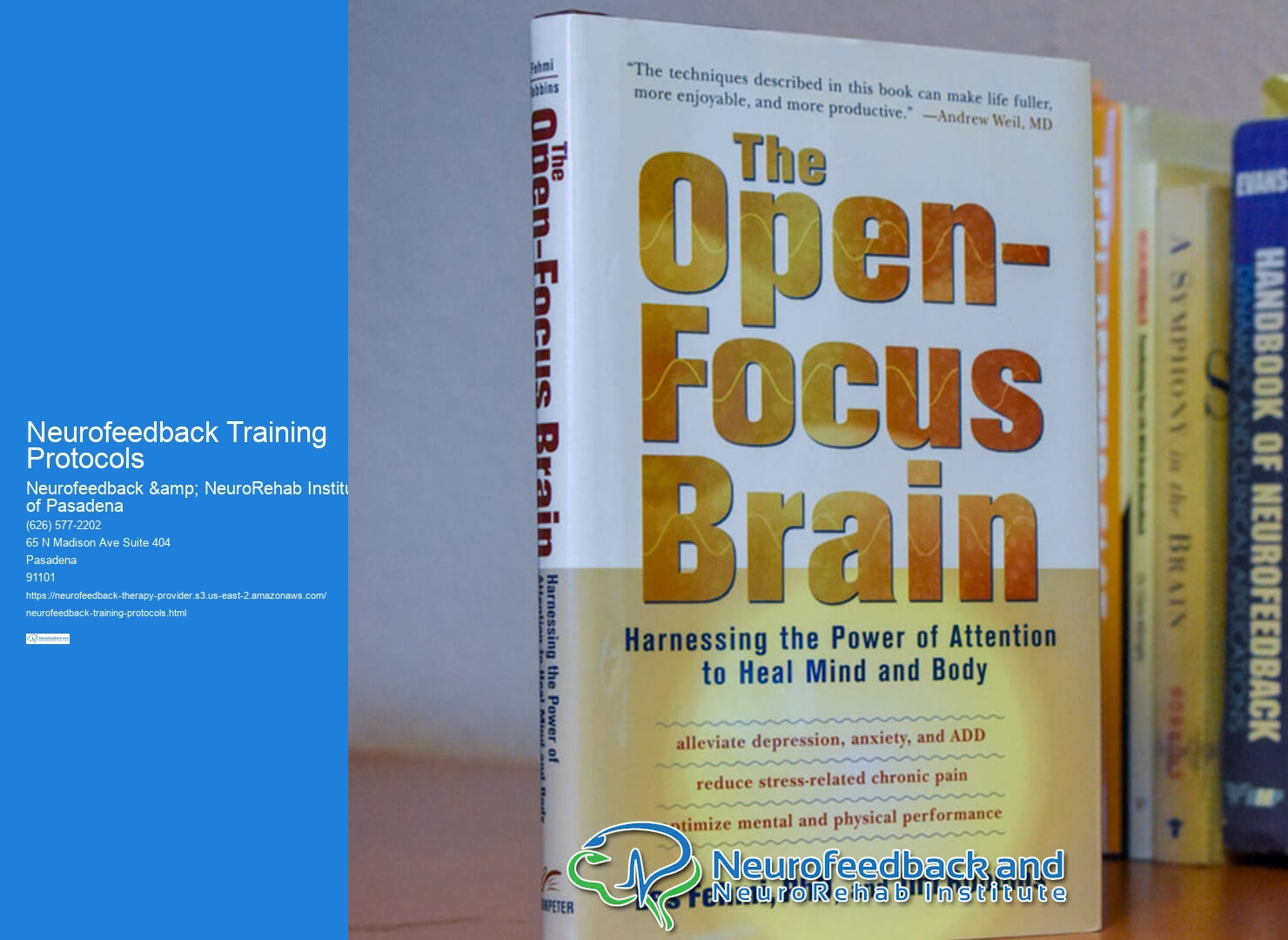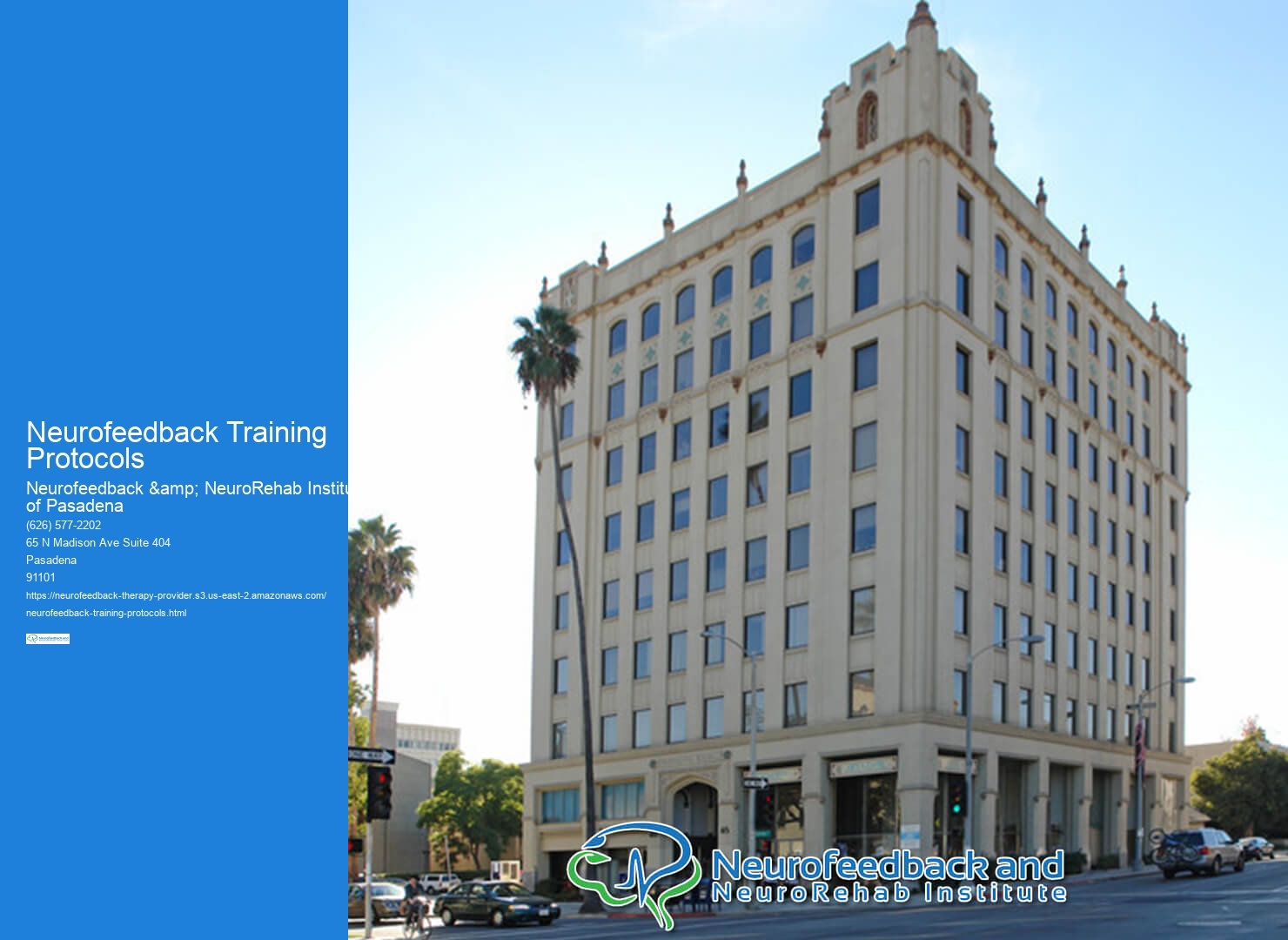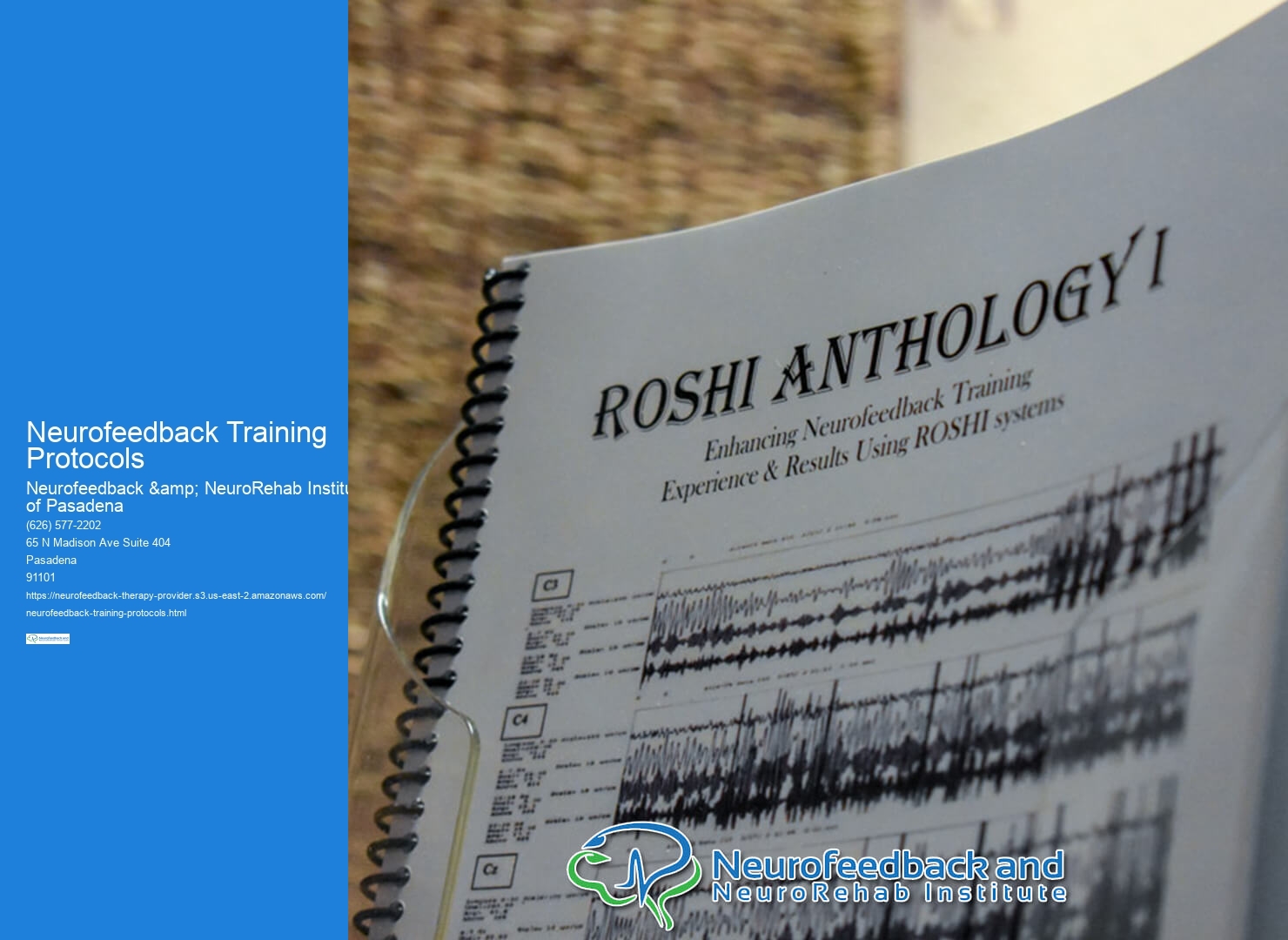

Neurofeedback training targets and improves specific brainwave frequencies associated with attention and focus by utilizing operant conditioning to modulate the individual's brainwave patterns. Through real-time monitoring of brainwave activity, neurofeedback training aims to reinforce desired brainwave frequencies, such as beta waves, which are linked to enhanced attention and focus. By providing feedback to the individual when their brainwave activity aligns with the target frequencies, neurofeedback training encourages the brain to self-regulate and optimize its attention and focus-related brainwave patterns.
When addressing symptoms of anxiety and stress, neurofeedback protocols often focus on enhancing the individual's ability to self-regulate their emotional responses and reduce hyperarousal. EEG Biofeedback Therapist This may involve targeting specific brainwave frequencies, such as alpha and theta waves, which are associated with relaxation and stress reduction. By training the individual to modulate these brainwave patterns, neurofeedback can help alleviate symptoms of anxiety and stress, promoting a calmer and more balanced emotional state.
Neurofeedback training can indeed be tailored to address specific cognitive functions, such as memory and executive function, through targeted protocols. For memory enhancement, protocols may aim to optimize brainwave frequencies associated with memory consolidation and retrieval, while executive function improvement may involve training to enhance brainwave patterns linked to cognitive flexibility and decision-making. By customizing neurofeedback protocols to target these cognitive functions, individuals can work towards improving their specific cognitive abilities.

In adapting to individual brainwave patterns and optimizing treatment for conditions like ADHD and autism spectrum disorders, neurofeedback training utilizes personalized protocols based on the individual's unique brainwave activity. For ADHD, protocols may focus on increasing beta wave activity to improve attention and impulse control, while for autism spectrum disorders, protocols may aim to enhance sensory processing and emotional regulation by targeting specific brainwave frequencies. By tailoring the training to the individual's brainwave patterns, neurofeedback can effectively address the symptoms associated with these conditions.
EEG Biofeedback ClinicianRecommended neurofeedback protocols for enhancing relaxation and sleep quality often involve targeting brainwave frequencies associated with relaxation and sleep onset, such as alpha and theta waves. By training individuals to modulate these brainwave patterns, neurofeedback can promote a state of relaxation and facilitate the transition into restful sleep, ultimately improving sleep quality and overall well-being.
Neurofeedback Session Provider
Neurofeedback training addresses symptoms of depression and mood regulation through targeted brainwave modulation by focusing on brainwave frequencies associated with mood regulation and emotional stability, such as alpha and theta waves. By training individuals to self-regulate these brainwave patterns, neurofeedback can help alleviate symptoms of depression and promote a more balanced emotional state, contributing to improved mood regulation and overall well-being.
Brainwave Therapy CoachSpecific neurofeedback protocols are designed to improve performance in athletes and individuals seeking peak cognitive function by targeting brainwave frequencies associated with optimal cognitive and physical performance. Protocols may aim to enhance focus, reaction time, and motor coordination by modulating specific brainwave patterns, such as beta waves. By training individuals to optimize these brainwave frequencies, neurofeedback can contribute to improved athletic performance and cognitive function, supporting individuals in achieving their peak potential.
Brain Training Coach
Yes, there are specialized neurofeedback programs designed specifically for athletes to enhance their performance. These programs often focus on improving cognitive functions such as attention, focus, decision-making, and emotional regulation, all of which are crucial for athletic success. Additionally, they may incorporate techniques to help athletes manage stress, anxiety, and performance-related pressure. By targeting specific brainwave patterns and training the brain to operate more efficiently, these specialized neurofeedback programs aim to optimize an athlete's mental and emotional state, leading to improved overall performance and resilience. Furthermore, some programs may also integrate biofeedback and neurocognitive assessments to provide a comprehensive understanding of an athlete's brain-body performance and tailor the neurofeedback training accordingly.
Alpha-Theta Neurofeedback is a form of neurofeedback therapy that aims to induce deep relaxation by targeting specific brainwave frequencies. By providing real-time feedback on the brain's electrical activity, this therapy helps individuals learn to self-regulate their brainwave patterns, particularly in the alpha and theta frequency ranges. Through this process, individuals can achieve a state of deep relaxation, calmness, and enhanced introspection. The neurofeedback sessions involve the use of specialized equipment to monitor and train the brainwave activity, promoting a sense of tranquility and mental clarity. This approach leverages the brain's natural ability to adapt and optimize its functioning, leading to improved relaxation and stress reduction.
Yes, there are neurofeedback programs specifically designed to enhance peak performance in musicians. These programs utilize neurofeedback techniques to help musicians improve their focus, concentration, and overall cognitive function, leading to enhanced musical performance. By targeting specific brainwave patterns and training the brain to achieve optimal states for creativity, concentration, and relaxation, neurofeedback can help musicians reach their peak potential. Additionally, these programs may also address performance anxiety and stress management, further supporting musicians in achieving their best performances. Overall, neurofeedback programs for musicians aim to optimize brain function and enhance musical abilities through targeted training and feedback.
Neurofeedback practitioners commonly pursue certifications such as the Board Certification in Neurofeedback (BCN) offered by the Biofeedback Certification International Alliance (BCIA), which demonstrates expertise in the field. Additionally, the Neurofeedback Certification Board (NCB) provides the Certified Neurofeedback Specialist (CNS) credential, signifying proficiency in applying neurofeedback techniques. Some practitioners may also seek training and certification through organizations like the International Society for Neurofeedback and Research (ISNR) or the Association for Applied Psychophysiology and Biofeedback (AAPB), which offer specialized programs in neurofeedback and related modalities. These certifications validate the practitioner's knowledge and skills in utilizing neurofeedback to address various neurological and psychological conditions.
Yes, there are neurofeedback programs specifically designed to help manage tics, such as those associated with Tourette syndrome. Neurofeedback, also known as EEG biofeedback, is a non-invasive technique that uses real-time monitoring of brainwave activity to help individuals learn to self-regulate their brain function. These programs typically involve training sessions where individuals receive feedback on their brainwave patterns and learn to modify them through techniques such as relaxation, visualization, and cognitive strategies. Neurofeedback has shown promise in helping individuals with tic disorders to reduce the frequency and severity of their tics, improve self-control, and enhance overall quality of life. It is often used as part of a comprehensive treatment approach that may also include behavioral therapy, medication, and other interventions tailored to the individual's specific needs.